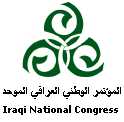Chalabigate
"Weapons of Mass Deception"

2004-11-12
The CIA Created INC
Iraqi National Congress

The INC got its start in the aftermath of the Persian Gulf War. With Saddam still in control of Iraq, the senior George H.W. Bush authorized a covert CIA operation to "create the conditions for removal of Saddam Hussein from power." The agency - unequipped to execute the President's "lethal finding" itself but with access to ready money - outsourced the job to the Washington, DC-based PR firm the Rendon Group, which was headed by a former Democratic Party director John Rendon. (Who´s company also came up with the name Iraqi National Congress)
There were at least two arms to Rendon's INC operation: a London-based media campaign that publicized the Iraqi dictator's human rights abuses, and a behind-the-scenes effort to create an opposition group within Iraq that would "gather information, distribute propaganda, and recruit dissidents." Working with the CIA, the Rendon Group created an umbrella organization for Iraqi dissidents, naming it the Iraqi National Congress. The polished and charming international financer Ahmed Chalabi, who had just been convicted of bank fraud in Jordan, was a CIA favorite and assumed a staring role in the organization.
"The Iraqi National Congress, and its most famous spokesperson Ahmad Chalabi, are entirely the creation of a media strategy company (Rendon Group) doing the bidding of the United States government." [2]
Between 1992-1996, the Rendon Group funnelled millions of US dollars to the INC. "We tried to burn through forty million dollars a year," Francis Brooke, who worked for Rendon in London, told the New Yorker's Mayer. Reportedly, Rendon's secret contract with the CIA guaranteed the firm a ten-percent "management fee" in addition to operation expenses.
"We had a real competitive advantage. We knew something about the twenty-four-hour media cycle, and how to manage a media campaign. . . . Rendon was great at issue campaigns," Brooke told Mayer. The London office offered stories of Saddam's atrocities to British journalists. According to Brooke, when too many of the stories would get picked up the US press, the Washington office would reprimand the London staff for violating US rules on domestic propaganda. But, Brooke told Mayer, "It was amazing how well it worked. It was like magic."
In northern Iraq, Rendon set up two anti-Hussein broadcasting operations and provided them with media training and propaganda. Robert Baer, a former CIA officer who covered Iraq, told Mayer that Chalabi had a "forgery shop" set up in Kurdistan. But as far as being a viable opposition to Saddam, the INC's operation was "just a Potemkin village," Baer said. "[Chalabi] was reporting no intel; it was total trash."
When the operation fell apart, a deep rift developed between the INC and CIA. While both blamed each other for being ineffective, the operation's failure did not receive much public or Congressional attention. Unchecked, many of the key players stayed in the game.
http://www.disinfopedia.org/wiki.phtml?title=Iraqi_National_Congress
http://en.wikipedia.org/wiki/Iraqi_National_Congress
http://www.fas.org/irp/world/para/inc.htm
http://www.iraqinews.com/party_iraqi_national_congress.shtml

The INC got its start in the aftermath of the Persian Gulf War. With Saddam still in control of Iraq, the senior George H.W. Bush authorized a covert CIA operation to "create the conditions for removal of Saddam Hussein from power." The agency - unequipped to execute the President's "lethal finding" itself but with access to ready money - outsourced the job to the Washington, DC-based PR firm the Rendon Group, which was headed by a former Democratic Party director John Rendon. (Who´s company also came up with the name Iraqi National Congress)
There were at least two arms to Rendon's INC operation: a London-based media campaign that publicized the Iraqi dictator's human rights abuses, and a behind-the-scenes effort to create an opposition group within Iraq that would "gather information, distribute propaganda, and recruit dissidents." Working with the CIA, the Rendon Group created an umbrella organization for Iraqi dissidents, naming it the Iraqi National Congress. The polished and charming international financer Ahmed Chalabi, who had just been convicted of bank fraud in Jordan, was a CIA favorite and assumed a staring role in the organization.
"The Iraqi National Congress, and its most famous spokesperson Ahmad Chalabi, are entirely the creation of a media strategy company (Rendon Group) doing the bidding of the United States government." [2]
Between 1992-1996, the Rendon Group funnelled millions of US dollars to the INC. "We tried to burn through forty million dollars a year," Francis Brooke, who worked for Rendon in London, told the New Yorker's Mayer. Reportedly, Rendon's secret contract with the CIA guaranteed the firm a ten-percent "management fee" in addition to operation expenses.
"We had a real competitive advantage. We knew something about the twenty-four-hour media cycle, and how to manage a media campaign. . . . Rendon was great at issue campaigns," Brooke told Mayer. The London office offered stories of Saddam's atrocities to British journalists. According to Brooke, when too many of the stories would get picked up the US press, the Washington office would reprimand the London staff for violating US rules on domestic propaganda. But, Brooke told Mayer, "It was amazing how well it worked. It was like magic."
In northern Iraq, Rendon set up two anti-Hussein broadcasting operations and provided them with media training and propaganda. Robert Baer, a former CIA officer who covered Iraq, told Mayer that Chalabi had a "forgery shop" set up in Kurdistan. But as far as being a viable opposition to Saddam, the INC's operation was "just a Potemkin village," Baer said. "[Chalabi] was reporting no intel; it was total trash."
When the operation fell apart, a deep rift developed between the INC and CIA. While both blamed each other for being ineffective, the operation's failure did not receive much public or Congressional attention. Unchecked, many of the key players stayed in the game.
http://www.disinfopedia.org/wiki.phtml?title=Iraqi_National_Congress
http://en.wikipedia.org/wiki/Iraqi_National_Congress
http://www.fas.org/irp/world/para/inc.htm
http://www.iraqinews.com/party_iraqi_national_congress.shtml
Milton Frihetsson, 16:12




